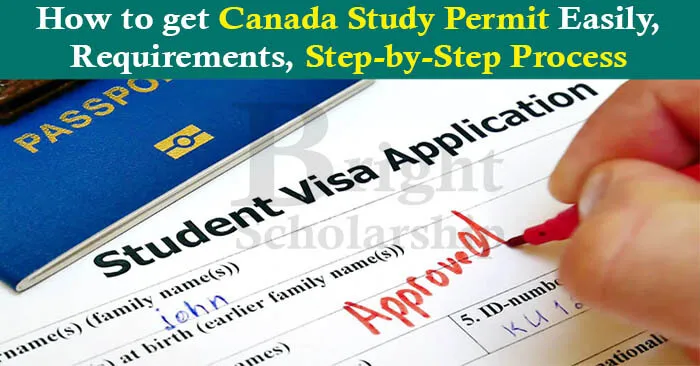Embarking on a journey to pursue higher education in Canada is an exciting and life-changing decision. Known for its world-class universities, diverse cultural landscape, and high-quality education system, Canada has become an increasingly popular destination for international students. However, navigating the process of obtaining a study visa and university admission can be daunting.
This comprehensive guide aims to provide step-by-step instructions, tips, and valuable insights to help prospective students successfully secure a study visa and gain admission to a Canadian university.
Researching Canadian Universities and Programs
Before diving into the visa application process, it’s crucial to conduct thorough research on Canadian universities and the programs they offer. Consider factors such as the university’s reputation, program accreditation, faculty expertise, and campus facilities. Additionally, assess the location, climate, and overall living environment to ensure it aligns with your preferences and lifestyle.
Choose Your Preferred Program and University
Start by identifying your field of study and shortlisting universities that excel in that particular discipline. Consider factors like program structure, curriculum, and available resources. Make use of online platforms, university websites, and academic forums to gather information and read reviews from current or former students.
Verify Admission Requirements
Once you have a list of potential universities, carefully review their admission requirements. This may include academic transcripts, standardized test scores (such as the GRE or GMAT), letters of recommendation, a statement of purpose, and a resume. Ensure that you meet all the prerequisites for your chosen program and prepare the necessary documentation.
Application Process for Canadian Universities
With your selected universities and programs in mind, the next step is to navigate the university application process. Each institution may have its own application portal and specific requirements, so it’s essential to be organized and attentive to detail.
Create an Online Application Account
Most Canadian universities have an online application system. Create an account on the university’s official website and carefully follow the instructions to complete your application. Provide accurate personal information, academic history, and details about your chosen program.
Submit Required Documents
Assemble all the required documents for your application, including academic transcripts, letters of recommendation, and any additional materials specified by the university. Ensure that your documents are properly notarized and translated into English or French if necessary.
Write a Compelling Statement of Purpose
Craft a compelling statement of purpose (SOP) that outlines your academic and career goals, why you chose the specific program and university, and how it aligns with your future aspirations. Tailor your SOP to reflect your unique qualities and experiences.
Prepare for Standardized Tests
If your program requires standardized test scores, such as the IELTS or TOEFL for English proficiency or the GRE/GMAT for specific programs, make sure to schedule and take these tests well in advance. Submit your scores directly to the chosen universities.
Pay Application Fees
Pay the application fees for each university you apply to. Fees may vary, so check the university’s website for accurate information. Keep records of all transaction receipts for future reference.
Track Application Status
Regularly check the application status through the university’s online portal. Some universities may provide updates via email, so be sure to monitor your email inbox and spam folder.
Acceptance Letter and Conditional Offers
Once accepted, you will receive an acceptance letter. In some cases, universities may issue conditional offers, contingent upon the completion of specific requirements (e.g., submitting final transcripts).
How to Applying for a Canadian Study Visa
After securing admission to a Canadian university, the next crucial step is obtaining a study visa. The study permit is a mandatory document for international students studying in Canada for a program lasting more than six months.
Understand Study Visa Requirements
Before applying for a study visa, familiarize yourself with the requirements set by the Immigration, Refugees, and Citizenship Canada (IRCC). Key documents typically include a letter of acceptance from a Canadian university, proof of identity, proof of financial support, and a valid passport.
Apply for a Study Permit Online
The study permit application is usually done online through the IRCC website. Create an account, fill out the required information accurately, and upload the necessary documents. Pay the application fee online using a secure payment method.
Provide Biometrics
As part of the application process, you may need to provide biometric information, including fingerprints and a photograph. Schedule an appointment at a designated Visa Application Centre (VAC) to complete this step. Attend a Visa Interview if Required
In some cases, applicants may be required to attend a visa interview. Be prepared to discuss your study plans, financial situation, and ties to your home country. Dress professionally and bring all relevant documents to the interview.
Receive the Study Permit
Once your study permit application is approved, you will receive a letter of introduction. Upon arrival in Canada, present this letter to the immigration officer who will issue your study permit.
Preparing for Arrival in Canada
With your study permit secured, the next phase involves preparing for your journey to Canada. This includes understanding your rights and responsibilities, arranging accommodation, and familiarizing yourself with the Canadian education system.
Attend Pre-Departure Orientations
Many universities organize pre-departure orientations for international students. Attend these sessions to gain valuable insights into Canadian culture, academic expectations, and practical tips for settling into your new environment.
Arrange Accommodation
Secure accommodation well in advance. Universities often provide on-campus housing options, and there are also numerous off-campus alternatives. Research the cost of living in your chosen city and plan your budget accordingly.
Familiarize Yourself with Canadian Culture
Canada is known for its diverse and inclusive culture. Take the time to learn about Canadian customs, etiquette, and social norms. Understanding and respecting cultural differences will enhance your overall experience.
Health Insurance and Medical Services
Ensure that you have health insurance coverage for the duration of your stay in Canada. Familiarize yourself with the local healthcare system, and if necessary, register for a provincial health insurance plan upon arrival.
Settling into Academic Life in Canada
Upon arrival, it’s essential to smoothly transition into your academic life in Canada. Attend orientation sessions, connect with fellow students, and make the most of the resources available to you.
Attend University Orientation
Participate in university orientation events to familiarize yourself with campus facilities, academic resources, and support services. This is an excellent opportunity to meet faculty members, staff, and fellow students.
Build a Support Network
Establish a support network by connecting with other international students and joining student organizations or clubs. Building relationships with classmates and professors can enhance your academic experience and help you navigate the challenges of studying abroad.
Time Management and Study Skills
Adapt to the Canadian education system by honing your time management and study skills. Attend workshops or seek guidance from academic advisors to ensure a smooth transition into the academic rigors of your program.
Stay Informed about Work Regulations
Understand the regulations regarding work opportunities for international students in Canada. While studying, you may be eligible for part-time work on or off-campus. Familiarize yourself with the conditions and restrictions associated with student employment.
Conclusion
Embarking on a journey to study in Canada is a rewarding and transformative experience. By diligently following the steps outlined in this comprehensive guide, you can successfully navigate the process of obtaining a study visa and university admission. Remember to stay organized, be proactive in your preparations, and embrace the opportunities for personal and academic growth that studying in Canada offers.
With careful planning and dedication, you can make the most of your educational journey in this welcoming and vibrant country. Good luck!


